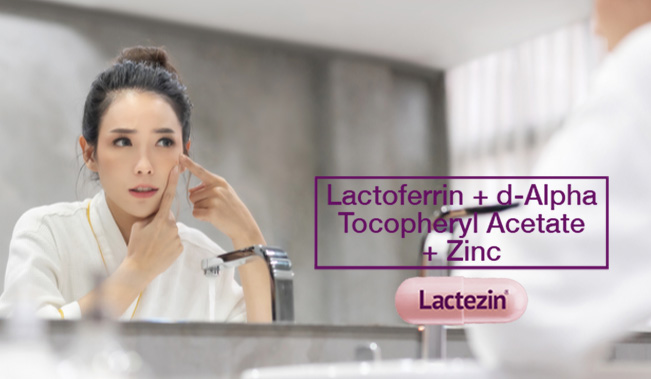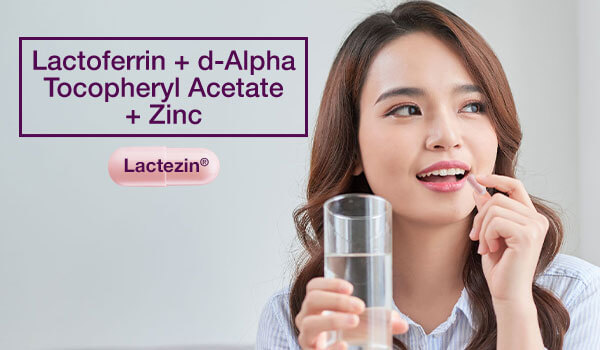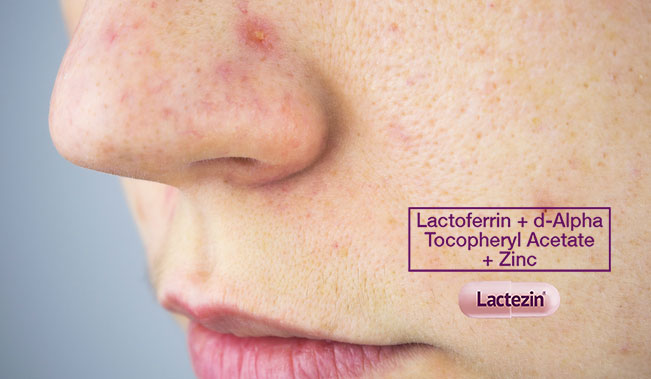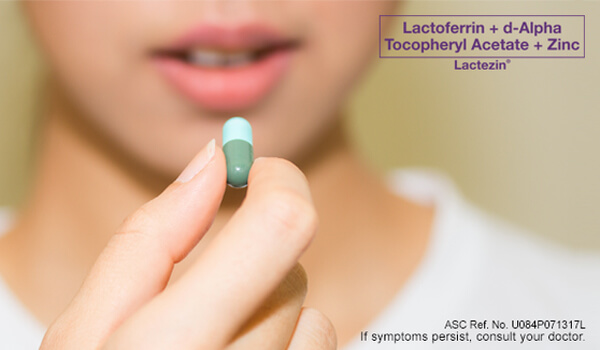This Bacteria Strain May Cause Acne Breakouts: Learn More Here

Acne that manifests in the form of painful pimples and stubborn whiteheads or blackheads can be the bane of one’s existence. But before you go ahead and start treating acne, you may want to learn why you struggle with it in the first place.
Increased oil production in your skin, clogged hair follicles, and inflammation can all play a role in development of acne, but did you know that a certain bacteria is responsible for it too?
You read it right - there’s a certain bacteria strain that may play a role in the development of pimples and other acne indicators. Take a quick look at how it affects your body’s largest organ and how to counteract its effects.
What Bacteria Causes Acne?
Propionibacterium acnes (P. acnes) is considered the most abundant bacteria on your skin, especially the pores, although it can also be found in your external ear canal, large intestine, eyes, and oral cavity. It also happens to play a big role in the development of acne.
This type of bacteria causes acne once it irritates trapped sebum and dead skin cells that have blocked your pores. This then leads to inflammation within the skin, paving the way for pimples and other signs of acne to appear.
Address Acne-Causing Bacteria With These Tips
Fortunately, you can combat the bacteria responsible for pimples and other acne symptoms. Take note of these tips that can help you gain the upper hand against breakouts:
- Stay away from acne-causing food: Certain food items can trigger pimples, such as refined grains, sugar, dairy products, and fast food. These food items can lead to inflammation within your skin and potentially cause breakouts.
- Mind your diet: Consume a healthy, low-glycemic diet containing nutrient-rich fruits and vegetables and whole grains, and legumes.
Food that’s rich in zinc, vitamins A and E, omega-3 fatty acids, and probiotics are good choices too as they can aid in improving skin health. Lastly, don’t forget to drink lots of water daily to prevent dehydration that can play a role in the development of breakouts.
- Consider antibiotics: Oral or topical antibiotics may help target the bacteria responsible for your pimples. However, remember that these types of medications must be taken under the supervision of a dermatologist or doctor, so make sure to consult any of these health professionals first.
- Refrain from touching your face with dirty hands: As mentioned earlier, acne-causing bacteria resides on your skin’s surface. When you touch your face with dirty hands, you risk transferring the said bacteria onto the area and end up creating a breeding ground for it. To prevent this, wash or clean your hands thoroughly before touching your face or applying skincare products.
In the same vein, resist the urge to pop or prick already present pimples to lower the risk for infection and scarring.
-
Sneak in some exercise: Apart from burning calories and shedding some of that extra weight, exercise can help promote better blood flow to the cells, deliver much-needed nutrients and oxygen, and drive away waste, leading to better skin health. Moreover, working out can be a stress-buster and fight inflammation that can cause acne.
However, when working out, make sure to keep your hands clean and free of germs to prevent the spread of pimple-causing bacteria. When touching equipment or towels, make sure you do so with clean hands.
- Manage your stress: While stressful situations are inevitable, too much of it can worsen your skin health and trigger breakouts. It’s said that the build-up of P.acnes bacteria on your skin can trigger a cascade of responses that ultimately result in skin inflammation and breakouts.
-
Clean your skin: Pimple-causing bacteria can build up on your skin, alongside extra oil and dead skin cells. Using the right cleanser for your face and soap for your body can help get rid of these impurities and dirt and pave the way for clean and glowing skin. Ideally, try to wash your skin and face twice a day with warm water and a trusted soap or facial cleanser.
If you’re not sure about the right products to use for your particular skin type, consult a trusted dermatologist today.
Prevent Bacterial Acne Before It Causes Further Harm
Now that you’re aware of the bacteria strain that causes breakouts, target it right away with an over-the-counter treatment like Lactoferrin + d-Alpha Tocopheryl Acetate + Zinc (Lactezin). This clinically-tested formula contains three pimple-fighting ingredients in:
- Lactoferrin: This iron-binding protein is a natural antibacterial and anti-inflammatory that combats pimple-causing bacteria, helps reduce sebum and inflammation, aids with repairing damaged skin cells, and enhances immune function.
- Vitamin E: It’s an antioxidant that can help maintain healthy skin cells, aid in fighting damage caused by free radicals and UV rays, and assist in maintaining skin moisture and preventing skin dryness.
- Zinc: Apart from helping enhance immune system health, this mineral may provide anti-inflammatory capabilities, assist in improving skin’s appearance because of its oil-regulating abilities, and aid in healing skin overall.
Together with proper diet and exercise, Lactoferrin + d-Alpha Tocopheryl Acetate + Zinc (Lactezin) can help treat and prevent pimples when taken twice a day for at least two weeks.
Lactoferrin + d-Alpha Tocopheryl Acetate + Zinc (Lactezin) is available in drugstores nationwide and select supermarkets, and online on Shopee and Lazada.
If symptoms persist, consult your doctor.
ASC REFERENCE NO. U100P060322LS
SOURCES:
https://www.medicalnewstoday.com/articles/107146
https://www.medicalnewstoday.com/articles/321411#fifteen-ways-to-prevent-pimples
https://journals.asm.org/doi/10.1128/JCM.02723-15
https://www.ncbi.nlm.nih.gov/books/NBK83685/
https://newsroom.ucla.edu/releases/new-study-could-explain-why-some-243582
https://www.verywellhealth.com/is-acne-contagious-15925
https://www.verywellmind.com/does-stress-cause-acne-3144829
https://www.healthline.com/health/anti-acne-diet#foods-to-help-your-skin
https://www.healthline.com/nutrition/foods-that-cause-acne
https://www.healthline.com/health-news/how-to-work-out-without-breaking-out
https://www.webmd.com/skin-problems-and-treatments/acne/10-tips-for-preventing-pimples
https://www.mayoclinic.org/diseases-conditions/acne/diagnosis-treatment/drc-20368048


